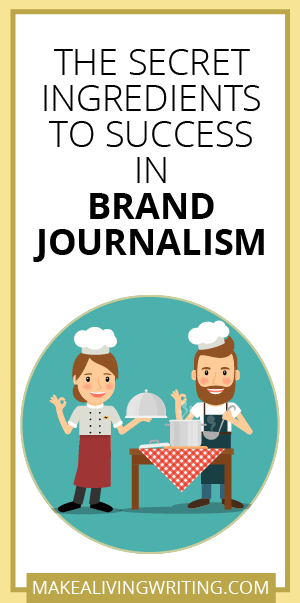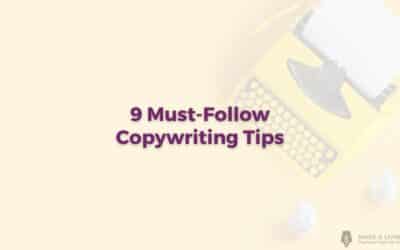
By writing content for companies, you can put your great storytelling skills to work in a growing, lucrative market.
Brands have the budgets and the motivation to pay good writers what they’re worth.
But how do you find brand journalism gigs? And once you do, what’s the secret to carving out a niche, landing repeat business, and making more money as a freelancer?
There’s a few key ingredients to success in brand journalism. And once you know the basic recipe, you’ll be able to create your own blend of skills and marketing strategies to land brand journalism gigs, move up and earn more.
Want to know how it’s done? We recently caught up with two experts in brand journalism to show you how:
Meet the brand journalism experts
In a recent Freelance Writers Den podcast, we talked with two successful brand journalists about how to land work and grow your business.
- John Egan is a freelance content marketing writer and brand journalist based in Austin. He has almost 30 years of experience in journalism, brand journalism, content marketing, blogging, communications and public relations.
- David Spark is a veteran tech journalist and the founder of Spark Media Solutions, a brand journalism firm. He has worked on content marketing campaigns for a number of Fortune 1000 companies.
Want to learn how to use your journalism skills to earn great rates? Find out how to get started with brand journalism in this Q&A.
Q: How do you define brand journalism?
Egan: If you flip the words, it’s journalism for a brand. Some people object to throwing those words together, but I don’t have a problem with it. Just because I work in house at a brand doesn’t mean I threw all my journalism training away. I’m still telling stories.
Q: What led you to get involved with brand journalism?
Spark: I’ve been doing traditional journalism for a while, but now I pretty much am a hundred percent into brand journalism. The main reason is that it’s far, far more lucrative. No ifs, ands or buts about it.
Q: What types of writing do you do?
Egan: I not only produce the content, but also come up with ideas and promote the content through social media.
I write blog posts, and I research and design infographics. I’ve also done case studies, white papers, and media relations.
Q: What do companies value in brand journalism?
Spark: Professionalism. Man, I have been the interviewee of so many shoddily produced videos and podcasts. The final product has to be something people want to share.
I want people to look good in the content I create and be happy about it. We get repeat business because the client appreciates the professionalism and how it makes them look good in the industry.
Q: Is there a difference between regular journalism versus writing for a company?
Egan: Not a lot. You want to be factual. It goes back to telling a story that’s interesting, that’s informative, that people find value in.
Q: Where can you find brand journalism gigs?
Spark: They’re not lying out there. You cannot just sell yourself as a writer that can create content. You have to make a case for why yours will be better than what the person who is already working there can do.
It takes a lot of frigging work. That’s the part everyone doesn’t want to hear. But figuring that out and selling that concept is a tough, tough thing.
The only reason we get work is because companies see our specific style and want it. My big advice is, figure out what your style is, brand it, and own a specific industry.
Q: Do you look up these jobs by searching for “brand journalism,” or something else?
Egan: Usually, you’ll see the phrases “content marketer” or “blogger.” Brand journalist is not a term that I see as much.
Q: Can you have more than one niche?
David: It doesn’t hurt. But in a field such as B2B tech, you can’t be everything. The space is huge. We have very specific areas in B2B tech that we’re knowledgeable about.
Q: What rates can you get as a brand journalist?
Egan: At the companies where I’ve used outside freelancers, our rate was 50 cents a word. Others work on a flat fee structure. Ask for what you think you’re worth and you’ll get a definite yes or no. Sometimes it takes negotiation.
Q: How do you scale up and get more work?
Spark: This is the huge advantage we all have in brand journalism-the work we do becomes the promotion for the next gig. Rather than selling a bigger concept like a case study, you say, “I did this. It generated X leads. Would you like that? Okay. Here’s the price.”
Don’t sell on what it costs for you to make a case study. Sell on how many leads they’re going to generate. Figure out what that’s worth to them, and that’s what you charge.
Q: How do companies measure the return on investment in brand journalism?
Egan: We measure how much traffic we’re getting, what people are reading, and how they’re behaving on that page. Many times content won’t result in immediate sales. But they may think of us the next time because they read an article on our website.
Q: What’s your best advice for writers who want to work in brand journalism?
Spark: It’s all about finding the niche and having connections.
Understand what the company is trying to pull off. Ask them, “What are you trying to do?” That’s how I get my business. It’s about discussing their specific needs and trying to address them.
Q: Which brands are doing a great job in the industry today?
Egan: I would pay attention to Coca-Cola. What they produce is really cool, and they were one of the early adopters of this new wave of content marketing and brand journalism.
Companies like John Deere have been doing this since the late 1800’s. It’s just we’ve slapped a new name on it, and it’s more prevalent now.
The internet has changed a lot of things. It has enabled more and more companies to tell their stories in a cost effective way.
Put your journalism skills to work
If you’re an old-school journalist or a freelancer who knows the ropes when it comes to reporting, interviewing, and storytelling, you can put those skills to work to land gigs in brand journalism. Companies need your help and are willing to pay pro rates.
Have tips or questions about brand journalism? Let’s discuss on Facebook and LinkedIn.
Maria Veres is a freelance writer based in the Oklahoma City area. She contributes regular Q&A blog posts to Make A Living Writing.










